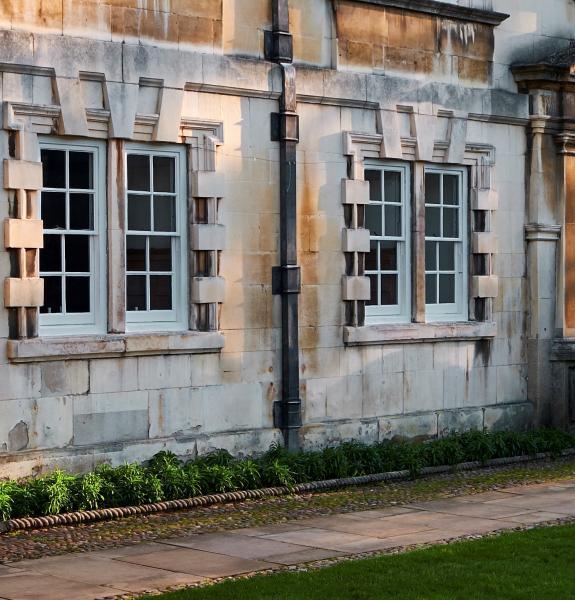Sophie wrote this at the end of her second year studying Modern and Medieval Languages (French and German). She is from Bedford, in the East of England, where she did A-Levels in French, German and History.
What attracted you to the course?
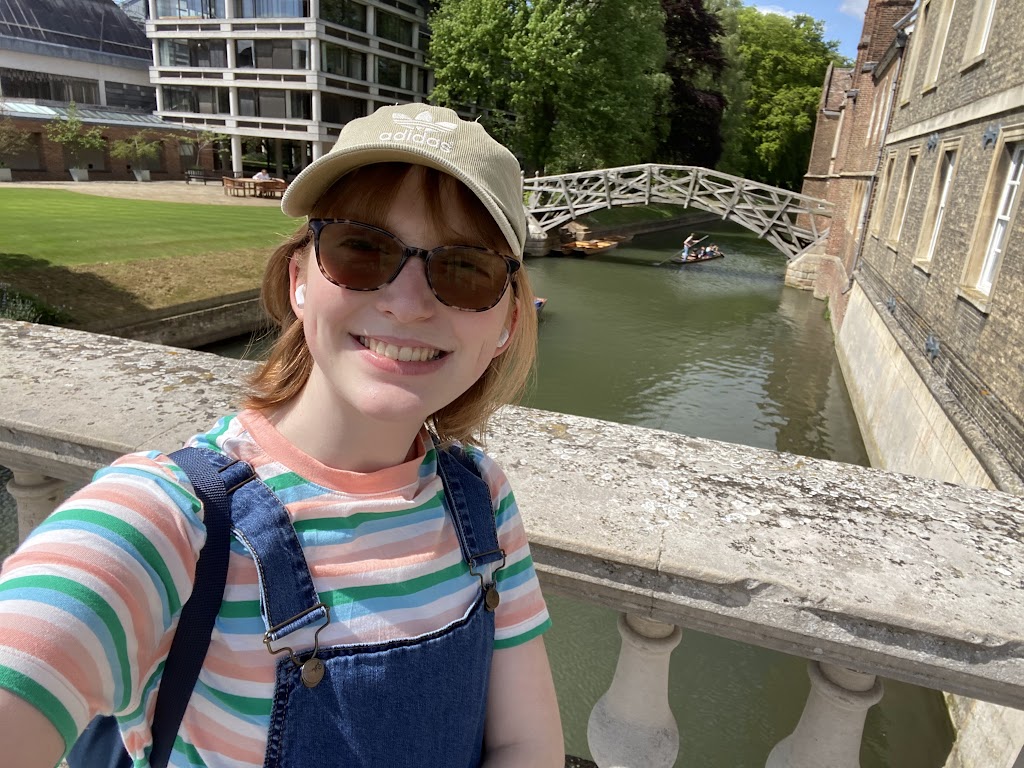
I had always planned to study German and History at university, not really understanding what that would entail, but having always enjoyed those subjects at school. As I got closer to A-levels and started researching my options for university study, I realised that I wanted to continue my study of French as well. As a result, I had a bit of a change of plan and focused on applying for courses which offered both French and German, where I could learn not only grammar and translation but also a range of cultural topics, such as history, literature and film.
The MML course at Cambridge definitely stood out to me compared to other similar courses at different universities. The main factor which (in my opinion) makes it unique is its variety and flexibility. For example, there are options to take a range of different 'scheduled papers' (these are the cultural topics which we have lectures on, and then write essays for our supervisions) from medieval literature to modern history and cinema. I liked the idea of getting to cover a broad range of topics in first year before narrowing in to more specialist areas of interest as my degree goes on.
I was also attracted by the flexibility of the Cambridge year abroad - we can work as a language assistant, study abroad or complete a voluntary or paid internship, and we can split the year across both languages or just focus on one.
Was there anything that you were nervous about, in relation to the course?

One thing I was a little nervous about was studying literature, because I had only studied two books across my two language A-levels. I had read the book and play which I studied and I have always been an avid reader (I also work part-time as a library assistant). However, I was a bit intimidated about writing essays specific to literature (which are definitely different in style and focus to those we do in history, for example), because this was a skill I hadn't been actively developing since GSCE.
This concern was definitely unfounded! Any and all areas in the 'scheduled papers', whether literature or philosophy, are more than accessible whether you have studied that discipline before or not. So long as you're enthusiastic you'll quickly pick it up. It also turned out that I had a knack for writing literature essays which I didn't expect. Some aspects definitely required more practice, but I made sure to communicate with my supervisors and their feedback was invaluable.
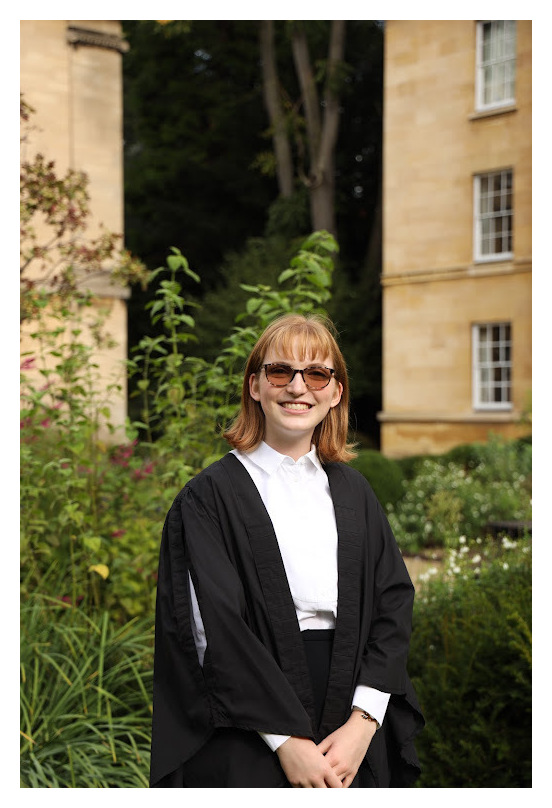 Although I came into my degree expecting to do a bit of literature in first year and then quickly moving my focus to historical 'papers' (modules) in the subsequent years, I have ended up doing the majority of my supervision essays on medieval literature and culture! It was a bit of a curveball, since it's a field which I had not really been exposed to much before, but I really enjoy how it mixes my interests. There is grammar (we get to learn the medieval language), literature, history, art, material culture and so many other exciting themes which intersect. If I hadn't been open-minded and prepared to push myself out of my comfort zone, I wouldn't have found this niche.
Although I came into my degree expecting to do a bit of literature in first year and then quickly moving my focus to historical 'papers' (modules) in the subsequent years, I have ended up doing the majority of my supervision essays on medieval literature and culture! It was a bit of a curveball, since it's a field which I had not really been exposed to much before, but I really enjoy how it mixes my interests. There is grammar (we get to learn the medieval language), literature, history, art, material culture and so many other exciting themes which intersect. If I hadn't been open-minded and prepared to push myself out of my comfort zone, I wouldn't have found this niche.
How did you find yourself at Christ's?
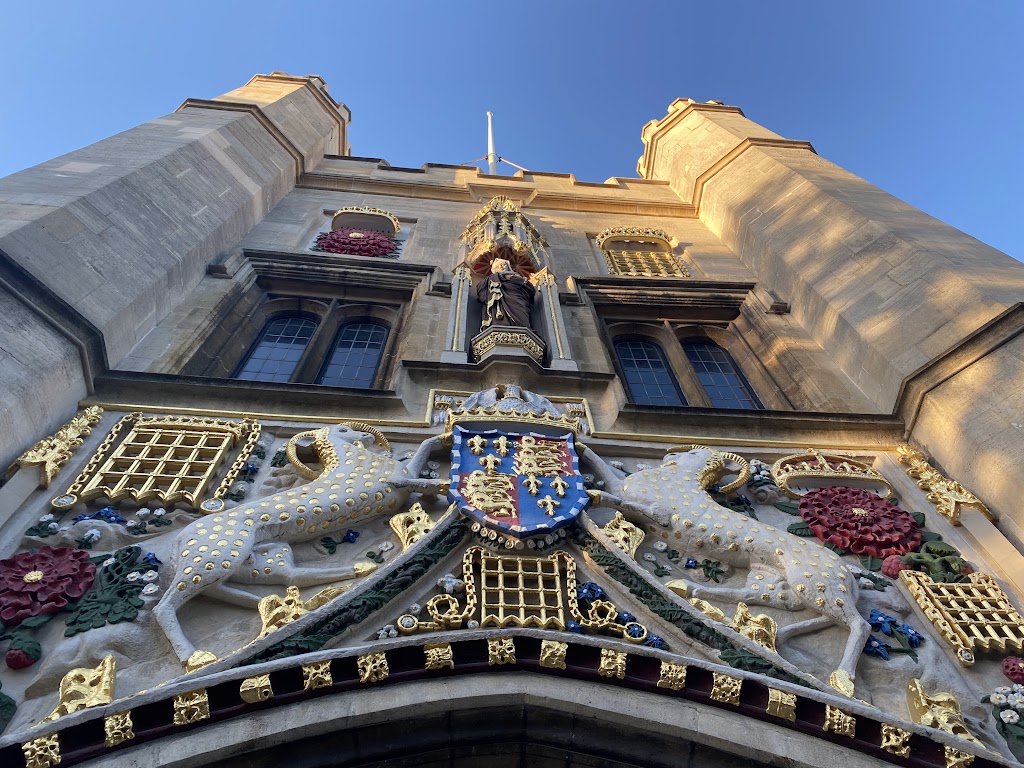
I didn't apply to Christ's, instead arriving here by perhaps the best twist of fate, via. the Winter Pool. I originally applied to Emmanuel College, which I had visited a couple of times and found had a friendly atmosphere. Interestingly, many of the aspects which appealed about Emmanuel are doubly true about Christ's College! The people are fantastic, I have made so many friends here and it is the most beautiful hidden haven in the middle of the city.
It was certainly a little daunting to be selected from the pool by Christ's, especially because I had never visited or even researched the college online. I knew nothing about college, so when I first got my offer email I didn't even know where it was in the city! It was also quite cool to have been pooled to such an academically prestigious college, it still feels like a lovely ego-boost (in a non-big-headed way) to know that I was chosen to attend here when it wasn't even on my radar.
Has Christ's lived up to your expectations?
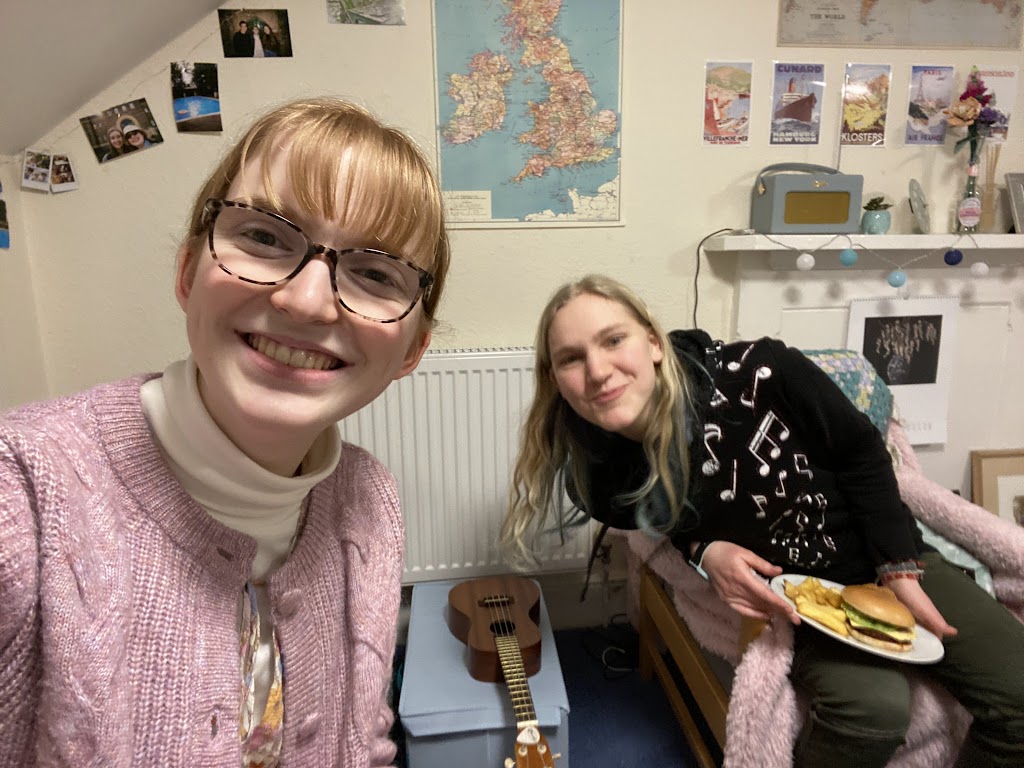
After receiving my offer from the pool I very quickly got very excited to be coming to Christ's. My year group had to deal with the cancellation of our A-levels due to Covid and several months of lockdown in the run up to our university experience, so the offer holders group chat formed a big part of my life during the run up to results. We had loads of zoom calls and an active group chat, which gave us strong foundations of friendship and support even before arriving.
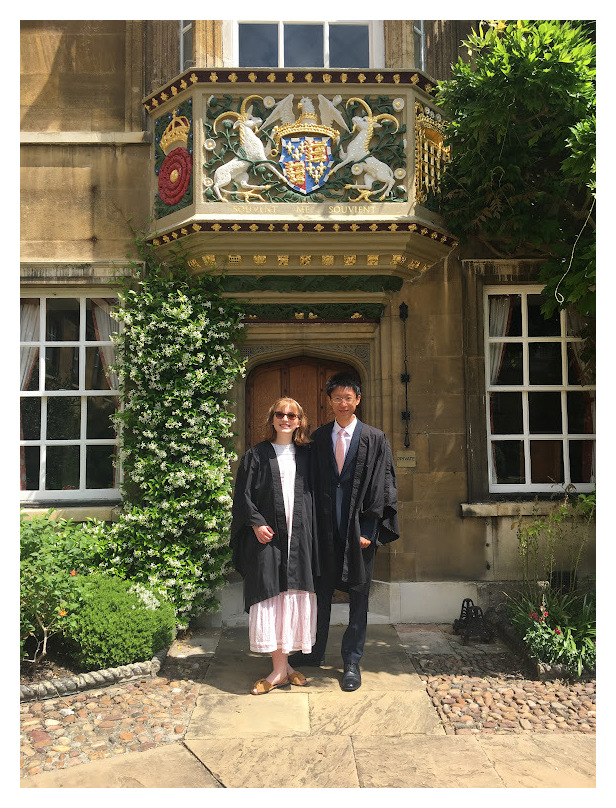
I also was lucky to visit the college very shortly before Covid, meaning I had actually set foot on the site and had a much better idea of the atmosphere, facilities and location I had in store. Christ's has not only lived up to my expectations, it has exceeded them. I have made friends for life here, and had a socially and academically enriching and exciting experience. College is absolutely home - and I think it will always feel that way due to the special memories I have made here, even in two short years so far.
What is your favourite place in college?
This is a tough one, college is so beautiful and I think the site as a whole is one of my favourite places full stop. As soon as you walk in, whether through the grandiose First Court Great Gate or elsewhere, it feels like stepping into a secret haven which is worlds away from the crowds and bustle of the city. Then, entering the Fellows' Garden just compounds that feeling for me: it is so peaceful and is a brilliant space for socialising, dinners with friends, sunbathing, enjoying the swimming pool, reading, and studying too.
If I had to rank my favourite places in college, though, this would be my list:
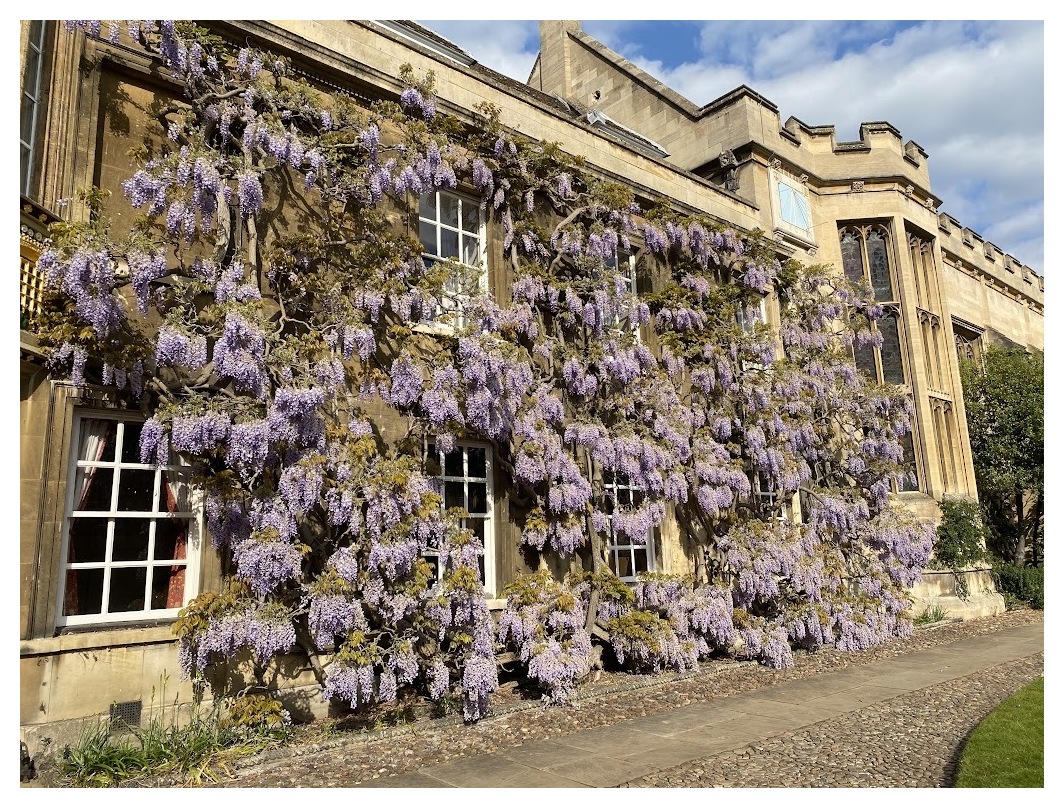
1. Third court: beautiful sunny garden, with picnic benches perfect for studying or hanging out with friends and occasional ducks or foxes.
2. Fellows' Garden: so much greenery, trees and pretty flowers! I love the pool and finding a cosy spot among the wildlife to read or chill out)
3. First Court (particularly the Buttery): the most beautiful buildings, stunning wisteria and flowers (shoutout to the gardeners) and a cosy café/bar space in the buttery which holds many fond memories.
4. New Court/Typewriter terrace: has fantastic views of college and Cambridge! Definitely a controversial building architecture-wise, but I honestly do love it and am glad I got to experience living there in first year.
What do you think of the collegiate system in general?
I think the collegiate system is fantastic! Not only is it a really cool traditional and unique aspect of Cambridge life, but it also means we get so much more personal and attentive support, both pastorally and academically. There are few other universities where you get a community of friends, academic support, pastoral care and a whole range of clubs and societies from the very same place where you live and eat.
One thing I would add is that the college system does not stop you from making friends or meeting people outside of your college. If anything, it makes it easier, because you will be able to make friends in several distinct but overlapping bubbles: college, subject and social life/societies. You'll meet people from different colleges during supervisions, lectures, society meetings, club nights (if that's your thing) and so will your friends from college. Then you'll meet your friends' friends, etc. etc. It is always lovely to have the college community there around you though.
What support have you recieved from the College?
Since being at college I have benefited from its support, both holistically in the form of its wonderful community, but also in other ways. For example, I received a grant to help fund a new laptop when my old one broke unexpectedly. I have also received a travel grant this year which helped me fund a trip to France during the summer vacation.
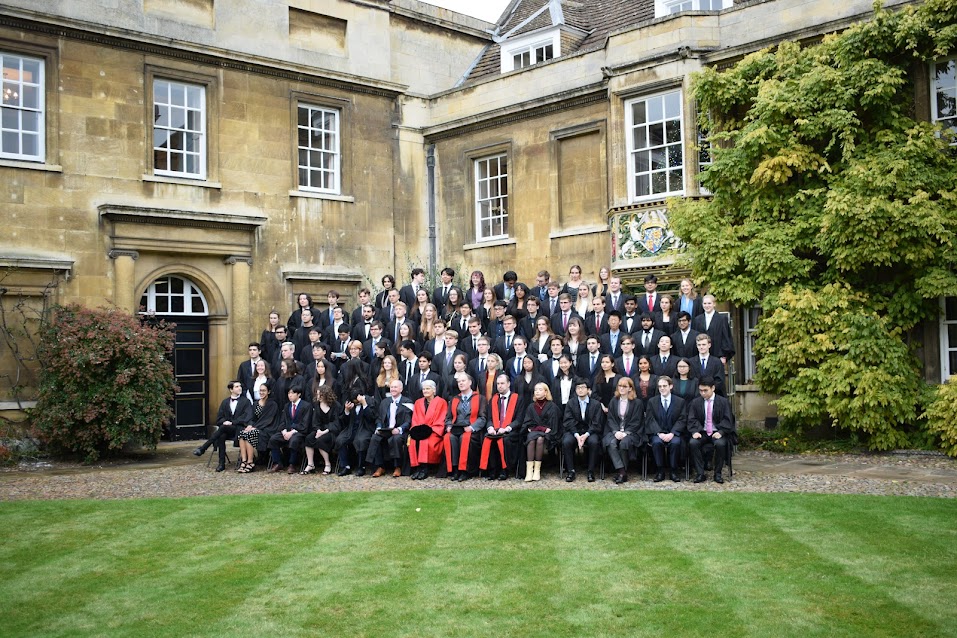
Academically there are also aspects of support which are - as far as I know - quite unique to Christ's. For example, I have three different Directors of Studies (DoSes). The Director of Studies is your academic point of contact for any support you need, and questions, administrative stuff, but also making sure you are enjoying your contact hours and making the most of your papers. We get an 'overall' DoS who doesn't necessarily teach the languages you study. This is great to have someone who understands an overall picture of your academic progress, and is also able to step in with far fewer complications if you ever had any issues with supervisors within your own language sections. Then, each individual language Director of Studies will of course have a close knowledge of your language, translation and 'scheduled' papers. They may also lecture or supervise you, or they could work in a completely different area to you! Having someone who understands the nuances of the language section you are working in is both practically advantageous and academically a real privilege.
All the Modern and Medieval Languages and History and Modern Languages students at Christ's also get Critical Theory seminars, which are not examined and are really a bonus course of seminars which have proven so helpful in my academic work. I am not aware of many other colleges which offer them, so it was definitely a surprise when I arrived! We've covered such a range of topics from the history of books and reading to the philosophy of Descartes, Hegel, de Beauvoir, Saïd and more. I have used facts, analytical skills or approaches I learned in these seminars across a whole range of papers for French and German, so it has really come in handy.
How did you find the application process?
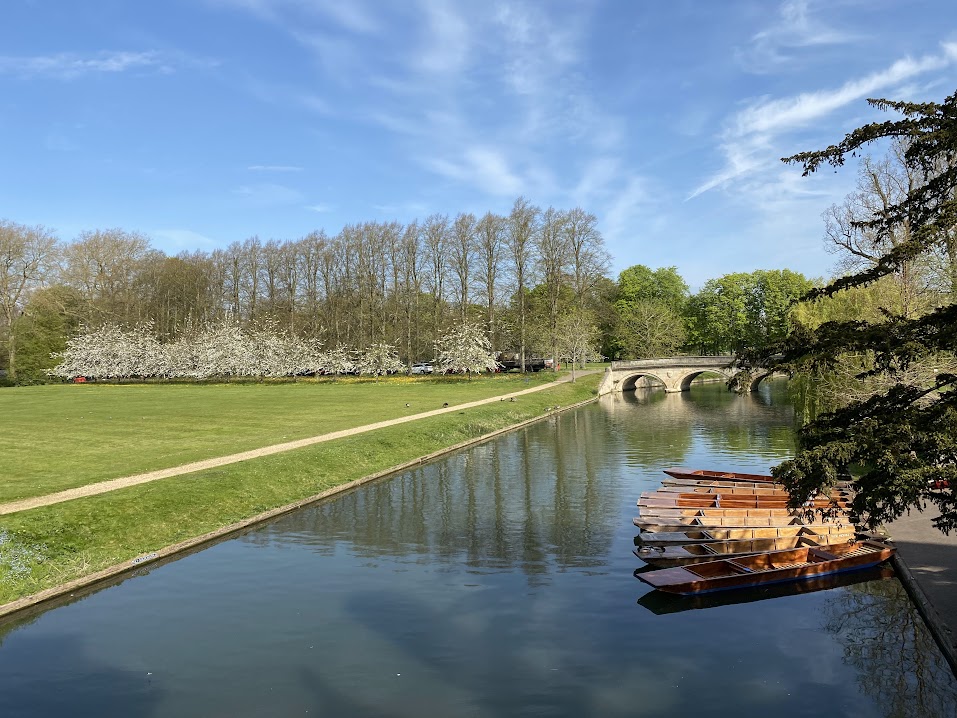
Long, tiring but ultimately worthwhile! I think you can get sucked up into the prestige and the reputation of the place, but I avoided this by focusing on the things I could control, and also leaning in to my excitement to even be able to apply. Neither of my parents went to university and I was applying to Cambridge: this gave me the attitude that whether I got an interview or not, or later whether I got an offer or not, I had given it my best shot and still had something to be proud about.
Was the interview what you expected it to be?
I had been able to do a practice interview organised by my school, which was helpful to make the approach of questions a bit less daunting. I was definitely still nervous, but once I got in the room the interviewers immediately put me at ease. They were all friendly and it was clear they were interested in what I had to say, and wanted me to do well.
In terms of content, it was what I expected (which I had researched online and spoken to some current students to figure out). I had to answer mixture of questions based on my personal statement, as well as the short passages I was given to read before each of the two interviews. Part of each interview was also conducted in the target language. This does work slightly differently if you didn't study one of your languages at A-level or equivalent.
How did you prepare for your interview?
As mentioned above, I had done a practice interview and tried to do as much research and preparation as I could without burning myself out. I made a document where I broke down my personal statement into little chunks, then put those into a table. Every time where I had mentioned something I had done, something I found interesting, a place I had visited or a book I had read, I gave it a column where I could write a few notes. I then did some research around the areas covered in my personal statement and put it all in that document, so that I knew it like the back of my hand. Naturally I couldn't remember everything in the interview, nor did they expect that, but it was very helpful to have covered all the possible bases for that chunk of the interview.
For the unseen extracts we had to read beforehand, I had practiced with my language teachers on analysing and discussing some short poems and literary extracts. In terms of the general interview approach (ie. not being afraid to voice your ideas, talking through your thought process), this definitely comes with practice and a bit of self confidence! I talked about things which interested me with anyone and everyone in the run up to the interview. My parents, my friends, customers at work, my teachers. Getting in the habit of talking about my subject made sure my enthusiasm shone through any anticipation during the interviews.
How did you prepare for your admissions assessment?
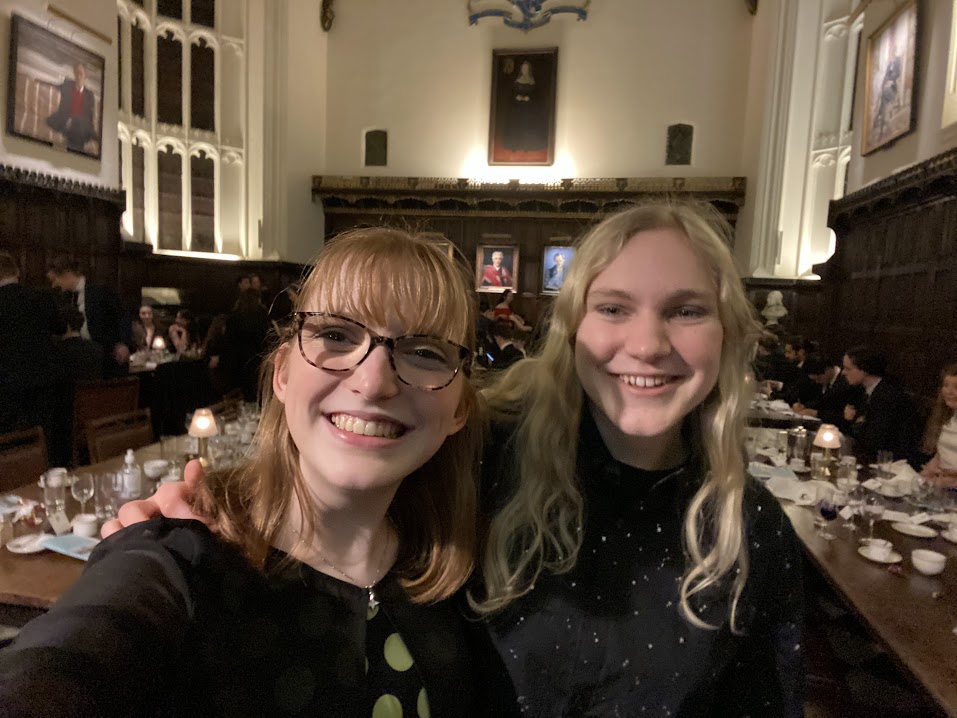
There's lots of helpful information on the MMLL faculty website which explains the at-interview assessment. I used this to guide my preparation, but definitely spent less time preparing for this than I did for the interviews themselves. There were past papers and marks schemes on the faculty website, so I practiced a couple of those to get an idea of timings for the assessment and the sort of approach I would take. I also used the mark schemes which were very helpful to understand the things examiners were looking for.
What specific advice would you give prospective applicants?
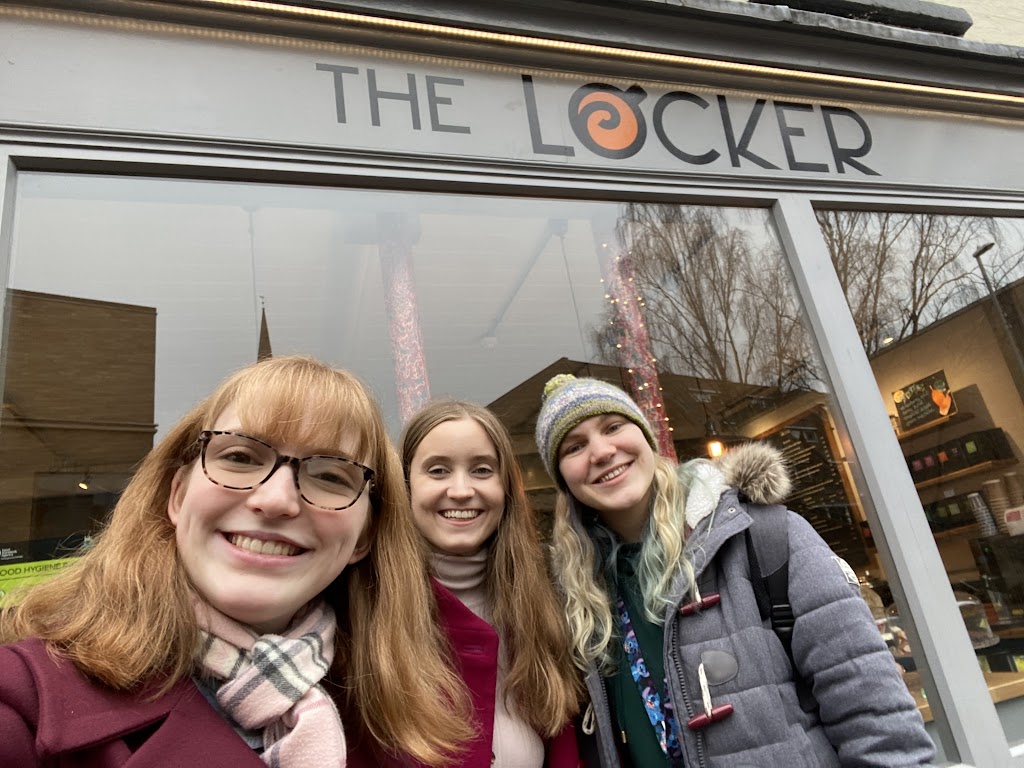
1. Be confident (but not cocky) about your abilities. You stand a great chance so long as you enjoy your subject and are excited by what you'd get to study here.
2. Do your research. Your faculty website for interview and admissions assessment details, past papers, mark schemes, guidance, etc. The college websites for information specific to their admissions processes.
3. Ask people for advice. Try and speak to as many people as possible who can help you in your application process. See if any teachers at your school either studied here or know someone who did. See if any former students from your school are studying here or if family friends/neighbours might have done so. If you don't have those people around the internet is such a helpful resource. Get in touch with admissions teams both within your desired faculty and within the colleges which interest you. They will be able to answer questions about the process and can get you in touch with current students who will be more than happy to give advice.
4. Check out the online/in-person open days, both at a university, faculty and college level. There are also plenty of videos, articles and tips online from the university, faculties and colleges, so lots to pick from. I would also recommend this Alternative Student Prospectus, which covers both choosing a college and picking a course. There are also lots of events for widening participation, such as the Students' Union Shadowing Scheme, summer schools and specific events led by individual colleges. I didn't have twitter while applying, but if you do, Cambtweet also provides a really useful insight into everyday student life here.
Before coming to Cambridge, what were you looking forward to, and what were you worried about?
Honestly, once I had my offer confirmed I wasn't really that worried about coming to Cambridge, because I was so excited! Naturally it was the first time I had lived away from home, but I think after months of lockdown I was more than ready for a new adventure and some independence!
How did you find settling in?
I think the lovely college community and the fact I knew a lot of freshers from our group chat and Covid zoom calls helped a lot. The fact that it is such a fast-paced and immersive environment in Cambridge also meant that I quickly fell into a routine which suited me, making it so much easier to branch out, try new things and make friends!
What was your freshers' week like?

Freshers was naturally not the experience I expected, because of Covid. Nonetheless, it was super fun and I think I probably settled in better to college because of the weird way it worked for us. As someone who isn't super into parties and clubbing, the fact that those weren't really on the table in the same way as previous years made it so much easier to settle in to uni social life. I quickly got involved in some fantastic societies which I still am active in and play a big role in my social life. I also made friends for life in that first week or so.
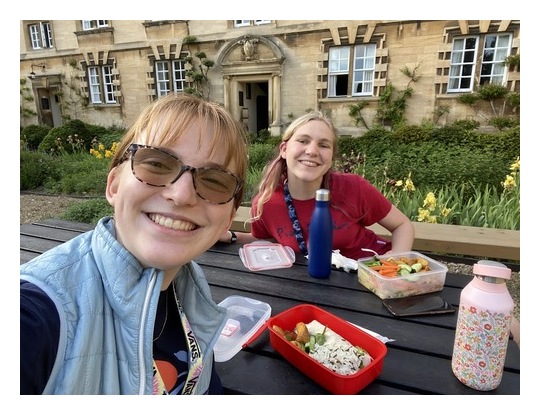
Some of my closest friends were those who I lived with in first year, and we became even closer because of covid rules meaning we became a 'Covid bubble/household' for much of first year. Eating dinners in Upper Hall was also a very important way to socialise and meet other people in college, so much so that this is still the name we use to describe our college friendship group, which was bonded over meals there and takeaways in the Fellows' garden (not just in Freshers', but beyond of course).
One of my favourite memories of Freshers' week was on the first night, when there was a college bop (imagine a school disco for university students), but my household ended up having our own unofficial bop in the Amenity Room (a quiet basement room) where we chatted away the whole night, had a right laugh playing some interesting music and somehow started dancing to 'What does the Fox Say?'. Don't ask.
What surprised you about Cambridge, if anything?
Not loads surprised me, I think Covid meant that things were a little more easy to digest because we didn't get the full-on university experience in one fell swoop. Things were in a way drip-fed to us a bit, as time went on. Perhaps I was surprised by how quickly I made very strong friendships. It is a very intense but rewarding environment both socially and academically, so you definitely get out what you put in. Since everyone is in the same boat, it really does bring you together!
How did you find starting your academic work?
I was so excited to start lectures, supervisions and classes. Naturally the first few were quite a strange, almost out-of-body feeling. I was definitely pinching myself, thinking 'Oh wow, I am actually doing this!'
My first few supervisions were one-to-one (while they're usually one supervisor and two students for my papers), because of Covid restrictions/people having to self-isolate. That definitely made it a bit strange, since you couldn't bounce off another person, but having to stand my own in those first few supervisions gave me such a confidence boost! I was able to take the feedback and experience from those and really work on improving, which has made my academic experience here so rewarding.
What is different about your work now, compared to school?
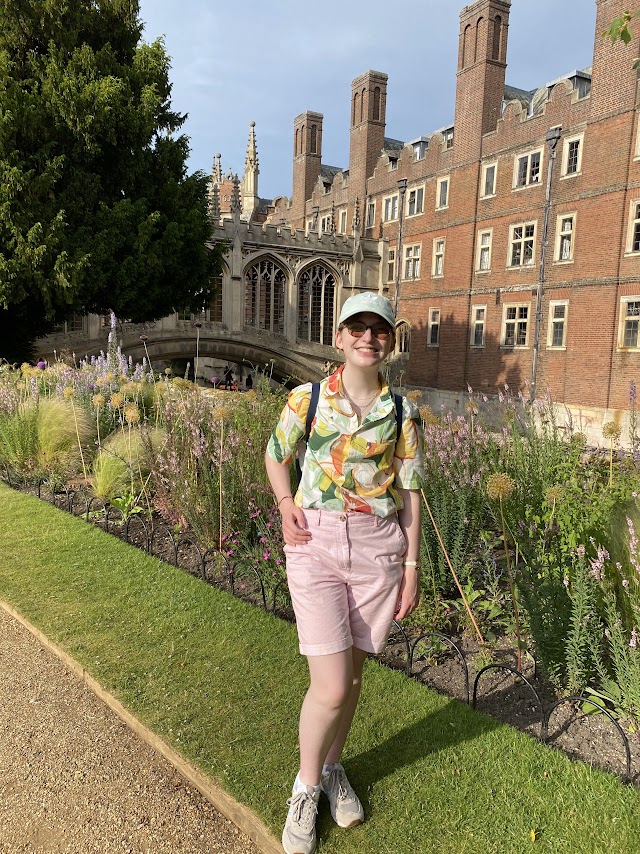
Work at university is worlds away from at school! I can't believe how much has changed, and I am so glad I am here and doing what I am doing. A few key differences:
- Structure: rather than an 8am-4pm school day Monday to Friday, my schedule is much more flexible, and fits into an eight week term rather a than three-four month term. I get to do my work when I want, so being able to fit it in between contact hours and plan according to my energy levels and social life was a really positive change.
- Self-led work: on a similar note, I got to choose so much more about what I studied. No more exercises from textbooks (well, except for some grammar classes!). I am able to pick my papers out of a whole range, and even within those I get a choice on my specific area of focus for every single supervision.
- Supervisions: definitely my favourite thing about studying in Cambridge. They are such a rewarding learning experience, where you get to have detailed feedback on your essays as well as discussing your topic with a leading academic. You're able to address questions from the lectures or your reading, and you'll absolutely be challenged to think of the content in new and interesting ways, which can often lead you down exciting paths you wouldn't expect! For instance, the idea I have for my Year Abroad dissertation was stemmed directly from a kind of 'eureka' moment I had during a particularly enjoyable supervision!
What are the best and hardest things about your course?
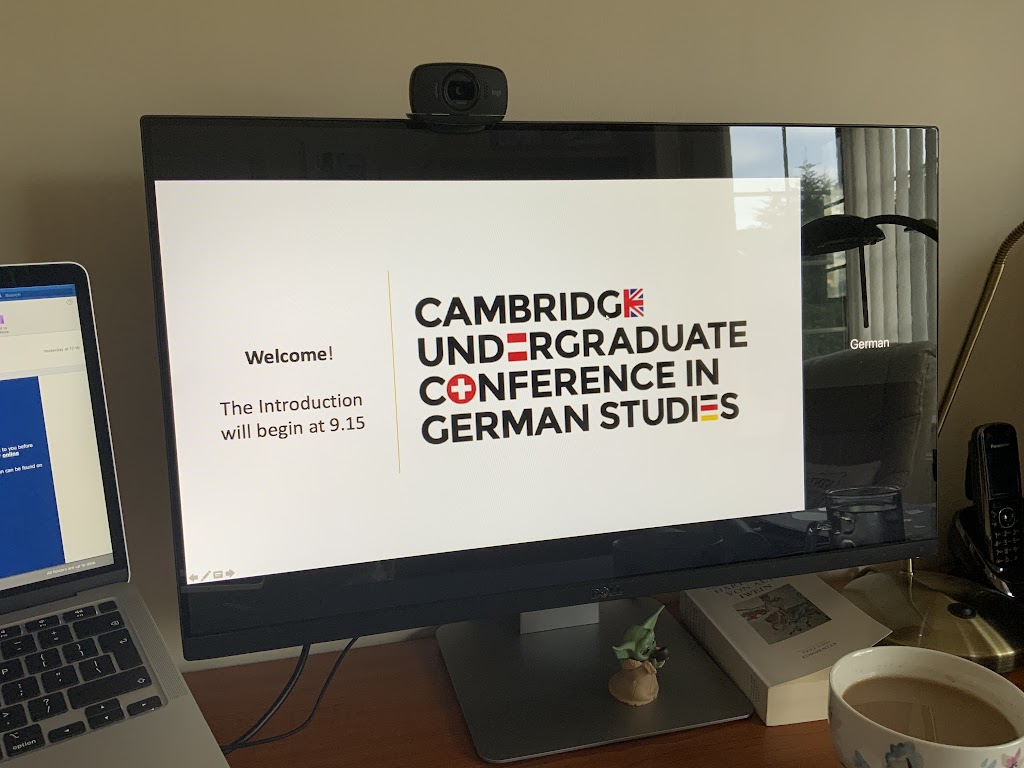
There are so many best things! The variety of topics, the close rapport with academics, and the real feeling of progress as you develop with your languages are just a few. The course offers everything I expected and so much more! I definitely feel like I have grown into it and thoroughly enjoyed each learning experience right from week 1 all the way to my Year Abroad now.
The hardest thing is probably that we have the amount of reading and essays you'd expect from a humanities course, but a number of contact hours far closer to that of a science (the grammar and translation classes, oral supervisions, additional seminars, lectures and essay supervisions really do add up!). Since you'll have a range of work tasks to complete for several different teachers and supervisors in between all those contact hours, you can sometimes get a time crunch or have several essays due at the same time... followed by a few days without deadlines!
You do quickly adjust to this though and I must say I have found it a lot easier to meet deadlines than I did during sixth-form, where there was a lot of homework and I had stuff due almost every day. Here, I do have several deadlines each week, but each class/supervision will have its own pattern which is then fairly easy to keep track of and work towards. If you utilise the quiet times, you'll be much more calm during the busy times!
What has been your favourite supervision from this year and why?
It's hard to choose a favourite supervision, since I have had a bunch of fantastic supervisors each with different styles that are hard to compare! I'd probably have to say my French supervision on the Song of Roland, a medieval epic text called a 'chanson de geste', from the 11th Century. This is the one I mentioned above which gave me an 'eureka moment' for my Year Abroad dissertation, because we made some really interesting connections between the context and content of the text and some of the themes we had been discussing in my medieval German supervisions. The overlap between the medieval German and French literature papers this year has absolutely been a highlight.
I also had a fantastic history supervision which was a sort of 1 to 1 office hours where we got to review feedback on our essay with our supervisor. It then turned into a fascinating discussion about the area I was covering for my Long Essay (coursework), which I left with lots of ideas for further development.
What does your timetable look like?
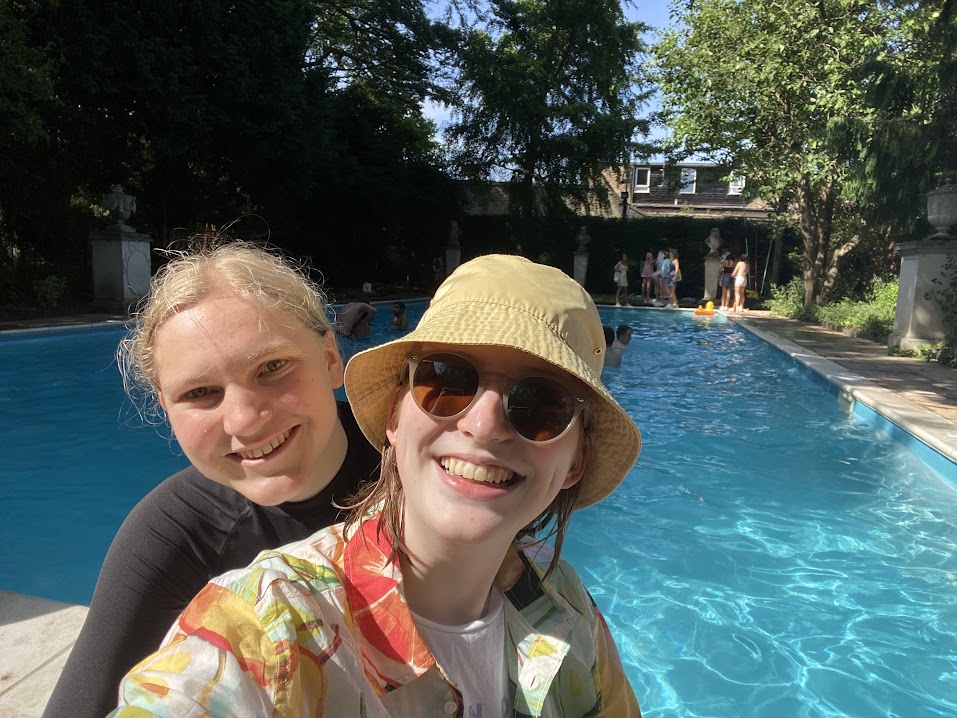
Teaching is split between language papers (including grammar, translation, oral supervisions) and 'scheduled' papers (cultural topics and corresponding supervisions, which you write essays for) as well as some additional seminars or lectures (eg. Critical theory seminars in Christ's).
How many hours of each depends on your language combination, your year of study and indeed the term! I try to attend all my lectures, although there have been one or two which were for topics unrelated to my supervisions or I couldn't make when I was ill for part of second year. Supervisions wise, I can't remember exactly how many I had in first year, but in second year I had roughly five or six a week. One for 'French through audio-visual media', one for 'German through audio-visual media' (language papers which I believe may be changing in the future, these were similar to the first-year 'oral supervisions' where you have an hour to practice in the language with a native speaker). The French one alternated weekly with my translation supervision, while I had my German translation supervision every week.
Then I would have two or three 'essay supervisions' (ie. for my scheduled papers) each week - depending on how the schedule worked out. This was alongside either weekly or fortnightly audio-visual media/translation classes (or grammar classes in first year) and lectures, which I probably had five a week in second year. It varied also depending on the term and what content needed to be delivered.
How do you manage the workload?
As mentioned above I manage my workload around my contact hours, and my social plans, both of which are non-negotiable. Then I figure out windows of time where I can do specific things. I've heard it called 'time blocking' in online productivity circles. I don't like to plan my day down to the minute, I prefer to have a big 'master list' with all my outstanding tasks and their due dates. Then I estimate how long each one will take (approximately). With this information, I slot in tasks into the time I have in between meals, contact hours and social plans (eg. coffee meet-ups, walks, Formula 1 watch parties, museum visits, movie nights, theatre, etc.). If something doesn't get done one day, I'll slot it in as soon as possible.
Every now and again things in the schedule bunch up, but I think it's important to remember that teachers and supervisors are people too! If you're transparent with them and explain why you need an extension, chances are they will not mind at all. They'd much rather you be honest and take the time you need to submit a good piece of work, than they would that you burn yourself out and produce something which is rushed, poor quality or even unfinished. I've even found that a lot of supervisors are under time pressure at roughly the same points of term as I am (usually if they have administrative deadlines, lots of college events or things like that) so they have always been very understanding in my experience.
Where do you typically like to work?
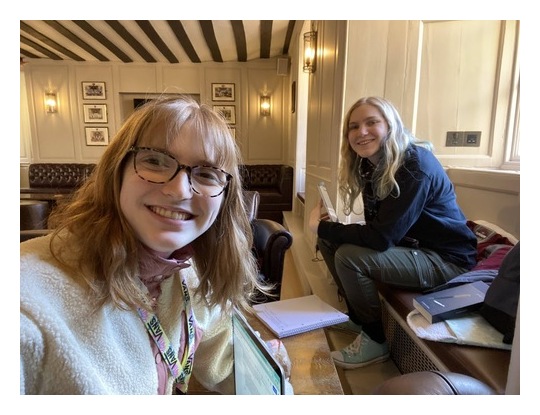
I like to vary up my study space based on task, concentration level and what I feel like on any given day. I love studying in a cafe, library, the college gardens or the buttery with friends but each of these has a different atmosphere. Also, I prefer to write essays on my own with my music on (usually in my room so I can access all my notes, books, etc.). Nevertheless, sometimes I will meet with a few friends who also need to smash out an essay! It is a superb way to have time with friends (breaks are easy when you can have a chat or go for a quick walk with your study buddy) and have some group motivation.
What have you enjoyed most about life at Christ's this year?
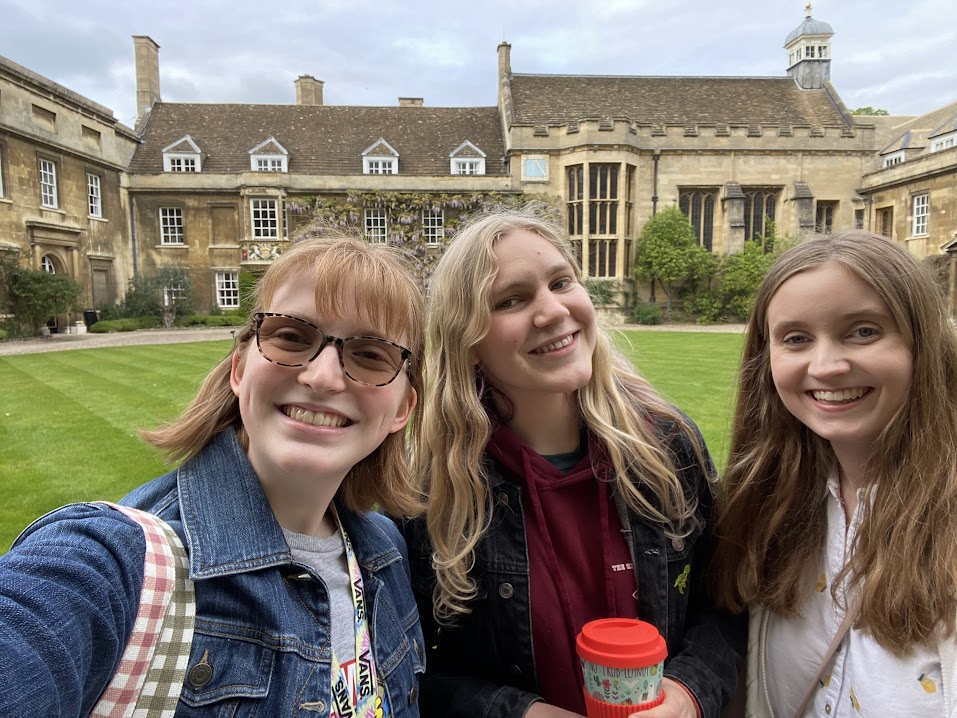
My favourite thing at Christ's is definitely my amazing, special friends, who do a whole range of subjects and come from all over the world! We all have different interests and it is such an interesting bunch of people to spend my time with.
Second year was our first proper non-Covid experience, and it was doing little things with them which made it such a special year. Getting Jack's Gelato after formal dinner in the middle of the winter. Hot chocolate tastings, visiting museums, bumping into friends while speedwalking through town, and so much quality time around college and the city.
What do you do when you're not working?

As well as just spending general quality time with my friends, I am involved in a few societies. I helped found and was President of the Cambridge University Motorsport Fans Society.
We have regular socials and watch parties which are a great way to meet friends from other colleges and subjects. I have written articles for the Varsity Student Newspaper, taught myself bass guitar and played in the College's pop group (part of the Christ's College Music Society), gone on rambles including a trip to Ely, seen celebrity speakers at the Cambridge Union and gone to dance classes, movie nights and so much more.
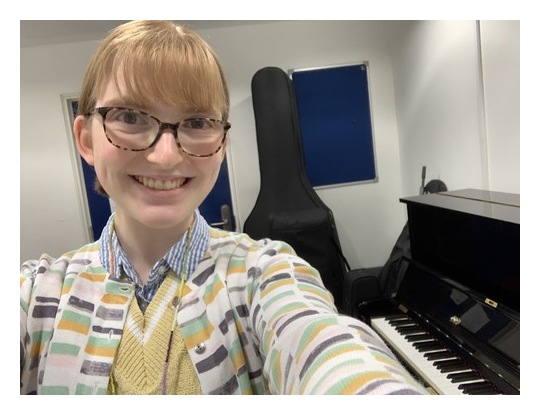
There is so much to see and do here, and I love it! 'Work hard, play hard' definitely applies to the Cambridge lifestyle. There are also some great societies which merge academic work and social life, such as the Cambridge Medieval Seminar – they hold seminars and hold dinner socials afterwards, which was a really cool and informal way to socialise with a bunch of academics and meet new people who share the same interests!
Where have you lived this year?
I lived on Jesus Lane in second year, in a house owned by college. It was fantastic! There's a little row of houses all owned by Christ's, so it's lovely to go visit your friends who are only a door or two down. You get a bit more space and independence than in college halls, so it was a cool experience. I was in the attic so had lots of space for hosting friends and a fab view over the city in one direction and the Jesus College grounds in the other! The House porters were lovely, they looked out for us and would clean/hoover once or twice a week which made it feel a bit hotel-like, but was a really nice perk.
How do you spend your holidays?
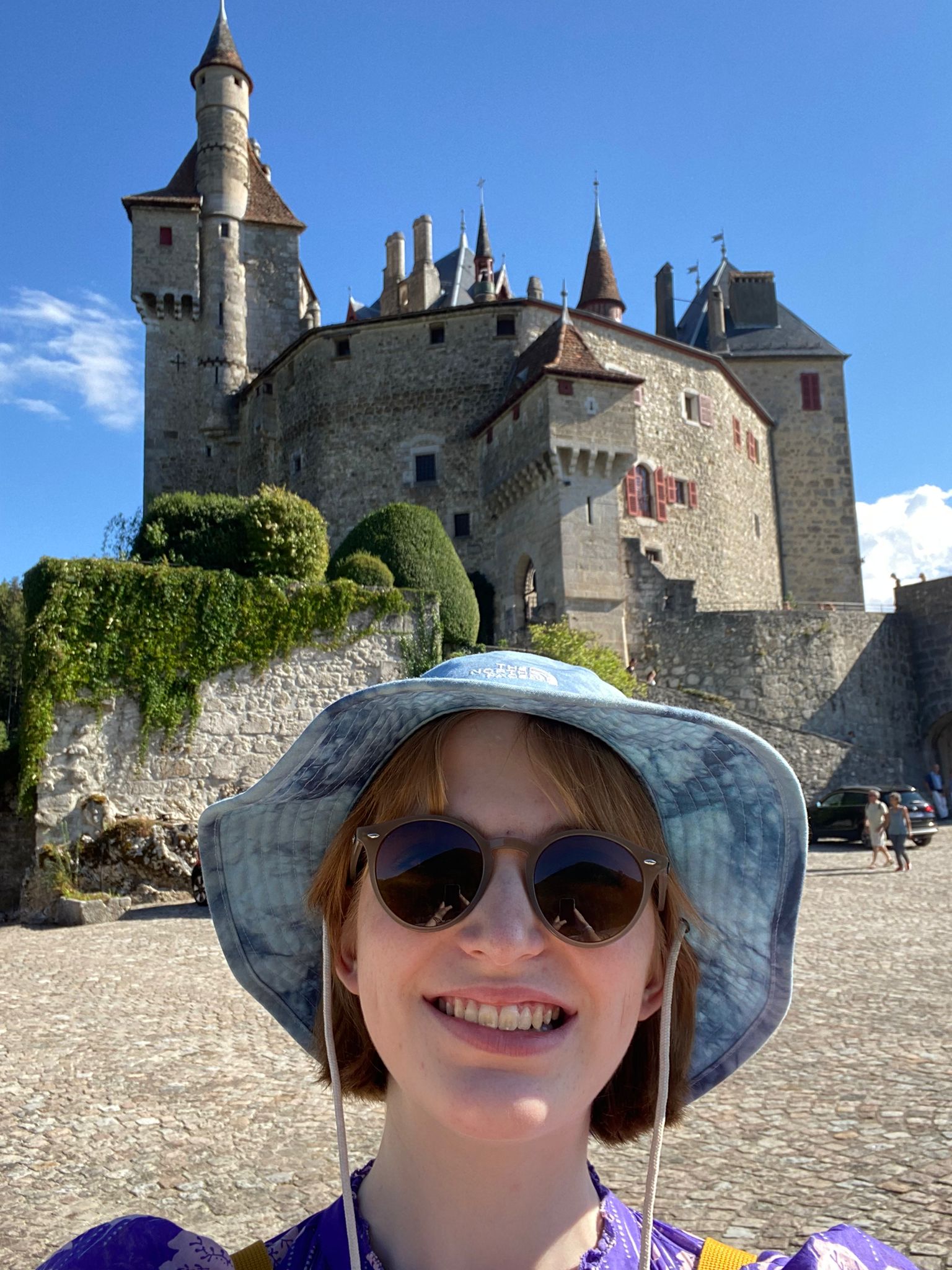
My first priority is always rest, recovery and relaxation! Now we're moving out of Covid, it's nice to travel if I can, even if just to visit family nearby. Quality time at home is very important to me. I enjoy also spending a bit of time on the start and end of each holiday in Cambridge, to have fun in the city without any academic deadlines! I'll try to keep some academic work chugging along, both since I enjoy it and because I prefer not to go cold turkey! I also enjoy seeing friends from home and prioritising hobbies.
What are you most looking forward to next year?
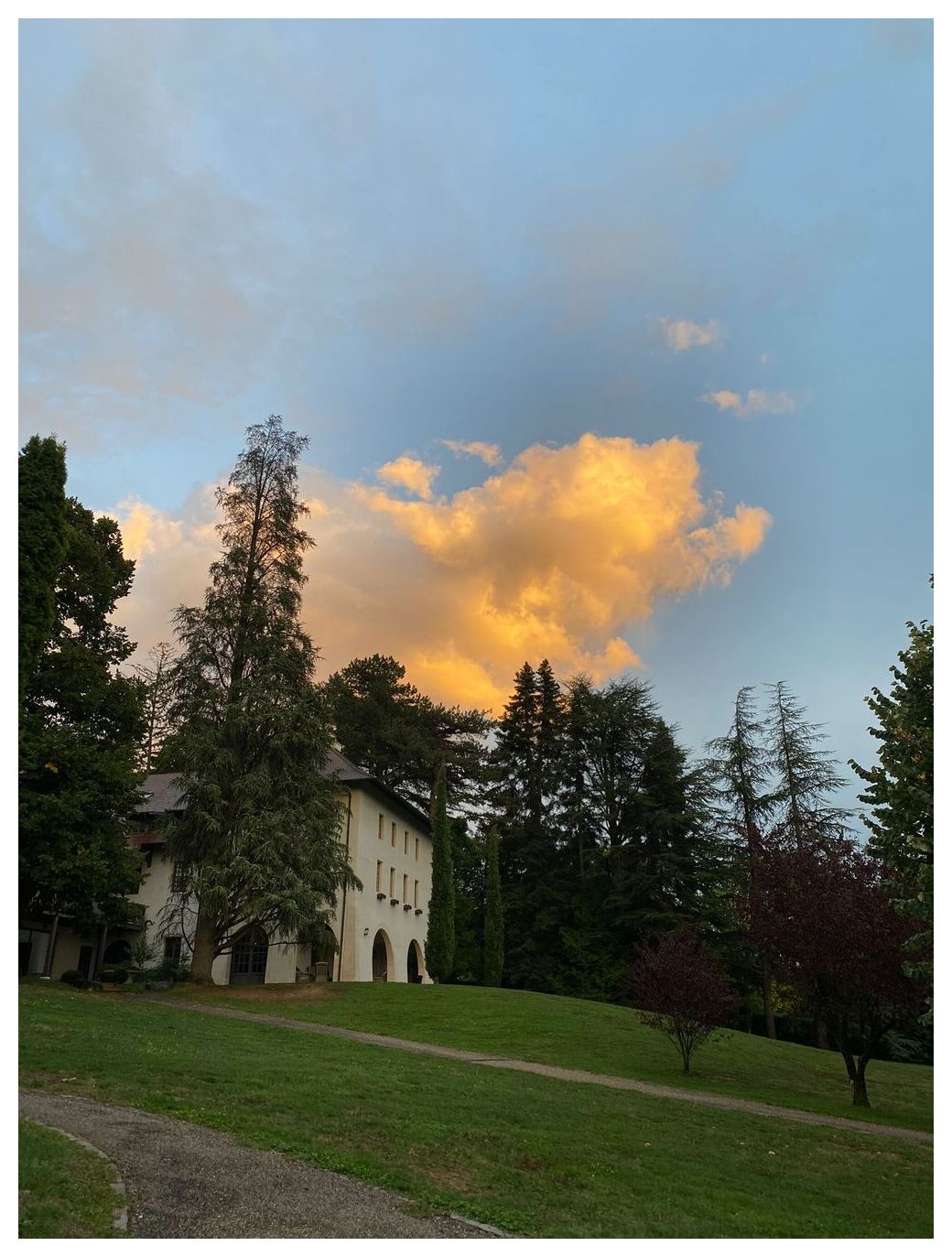
My Year Abroad! I am currently in Annecy, France, where I will be completing a 6 month placement working as a receptionist intern in an international conference centre. Then I plan to complete another placement in Germany. I will also be completing a Year Abroad Project. We get to choose between a translation or linguistics project, or a dissertation (which is what I am doing). It's exciting to get involved in some more in-depth academic research!
July 2022
Please be aware if you're considering an application that our student writers describe their experiences. Although the majority of the information stays the same, some details may change from year to year. Do read the student profiles in combination with our undergraduate admissions pages for full information.
Back to Student profiles page / Modern and Medieval Languages at Christ's / Next: Yii-Ling's profile


